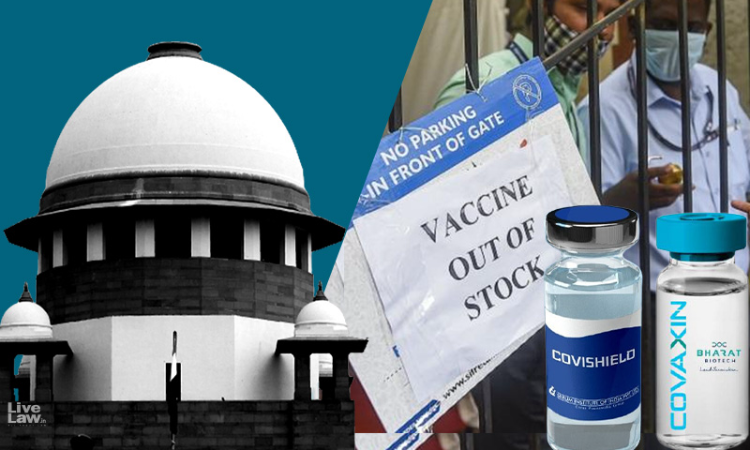COVID Vaccines : Why States Have To Pay Higher Prices? Price Must Be Uniform, Supreme Court Tells Centre
Radhika Roy
31 May 2021 3:12 PM IST

Next Story
31 May 2021 3:12 PM IST
"There needs to be one price for COVID-19 vaccines across the nation", said the Supreme Court during the suo moto case on COVID-related issues (In Re Distribution of Essential Services and Supplies During Pandemic). A 3-Judge Bench of Justices DY Chandrachud, L. Nageswara Rao and S. Ravindra Bhat posed tough questions to the Central Government on the rationale of the dual...
